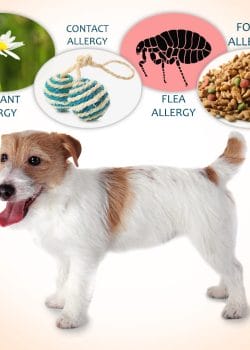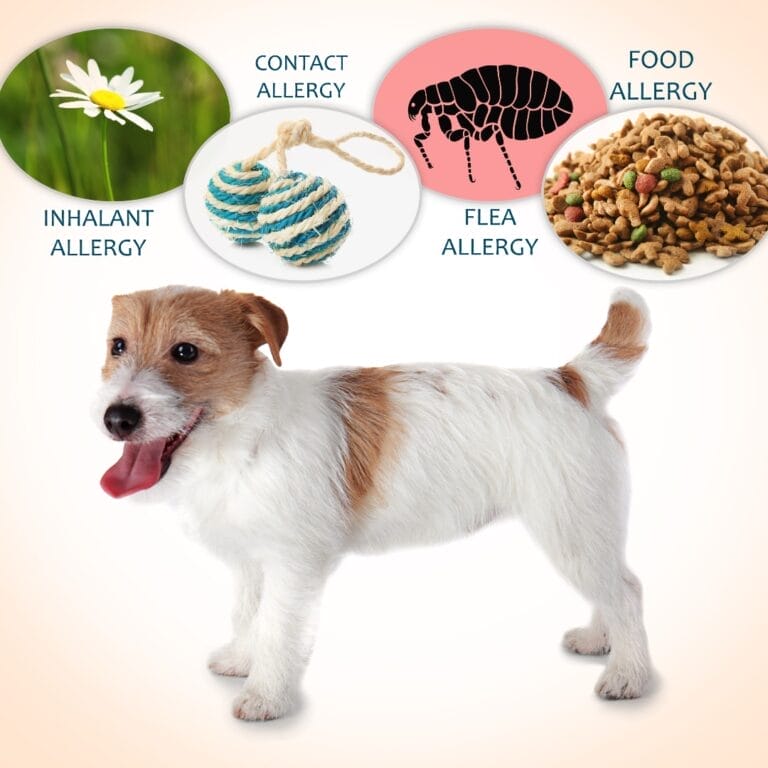
Appetite stimulants for dogs are essential in cases where a dog refuses to eat for an extended period, affecting their health, or when they consistently fail to consume enough calories to maintain a healthy weight. These stimulants can also be helpful in situations where a dog is on medication, such as chemotherapy, which decreases appetite. Additionally, appetite stimulants can support a dog recovering from an illness or assist in their acceptance of a new diet.
There are two primary categories of appetite stimulants available for dogs: prescription and over-the-counter. Prescription stimulants tend to be the most effective option, as they work directly in the brain to encourage appetite. Over-the-counter options, while not as potent as prescription medications, can still provide a natural or holistic alternative to support a dog’s appetite and overall health.
It is crucial to consult with a veterinarian before administering any appetite stimulants to a dog, as they can help determine the most suitable option based on the animal’s specific needs and health conditions. This ensures the best possible outcome for the dog’s appetite and well-being.
RELATED: Top Six Non Prescription Appetite Stimulants For Dogs
Understanding Appetite in Dogs
Appetite in dogs can vary significantly depending on factors such as age, health, and activity levels. As responsible pet owners, it’s crucial to understand these factors and how they might influence a dog’s appetite to ensure the overall health and well-being of your furry companion.
A dog’s age plays a significant role in their eating habits. Puppies usually have a voracious appetite, as they are in a critical growth phase and require more nutrients and calories for proper development. As dogs reach adulthood, their appetites tend to stabilize in accordance with their energy needs. Senior dogs often experience a decrease in appetite due to reduced activity levels and metabolic changes, which may require adjustments to their dietary intake and close monitoring to prevent malnutrition.
Health issues can also have a direct impact on a dog’s appetite. For instance, dental problems, gastrointestinal disorders, and infections may cause a decrease in appetite, signaling that something is wrong with their health. In some cases, medications or treatments, such as chemotherapy, can also lead to a reduction in appetite. It’s important to closely observe your dog for behavioral changes and seek veterinary advice if your dog consistently refuses to eat or shows signs of significant weight loss.
Activity levels play a crucial role in a dog’s appetite as well. Highly active dogs, such as working canines or those involved in agility training, often require additional calories to maintain their energy levels and avoid weight loss. In contrast, less active or sedentary dogs may need fewer calories, and overfeeding them can lead to obesity and associated health problems.
There are various appetite stimulants for dogs available for cases when their appetite is negatively impacted by health issues, medication side effects, or other factors. However, it’s essential to consult with your veterinarian before resorting to these stimulants, as they should only be used when necessary and under your vet’s guidance.
By understanding the factors that influence a dog’s appetite, including age, health, and activity level, you can better ensure their overall health and wellbeing. Monitoring your dog’s appetite and seeking veterinary consultation when necessary will help you maintain their optimal nutritional intake and support a happy, healthy life for your beloved canine companion.
Causes of Loss of Appetite in Dogs
Diseases and Medical Conditions
Loss of appetite in dogs can be attributed to various diseases and medical conditions. Kidney and liver diseases can lead to decreased appetite, as these organs play a vital role in digestion and metabolizing nutrients. Diabetes and inflammation can cause anorexia, as well as dental diseases that make it painful for dogs to eat. More serious conditions, such as cancer, may also be a factor.
Dogs may also experience nausea, diarrhea, gas, and lethargy, which can be caused by an upset stomach, infections, or an elevated blood urea nitrogen level. A dog’s appetite can be affected by diseases affecting the central nervous system, causing vertigo and disorientation.
Emotional Factors
Stress and emotional factors play a significant role in a dog’s appetite. Anxiety and fear can lead to a dog’s refusal to eat, as their mental state impacts their hunger drive. It is important to recognize that what a dog perceives as stressful might differ from what their owner thinks. Identifying and alleviating sources of stress will help to improve your dog’s appetite.
Weather events such as thunderstorms will often result in your dog losing interest in food.
Weather Factors:
This loss of appetite in dogs during thunderstorms is a common behavior and can be attributed to their heightened senses and anxiety. Dogs have a keen sense of hearing and can detect changes in barometric pressure, which often occurs during thunderstorms. The loud noises and flashing lights associated with thunder can be overwhelming and frightening for dogs, causing them to feel stressed and anxious. This heightened state of anxiety can lead to a decreased desire to eat or drink, as their focus shifts towards seeking comfort and safety. It is important for dog owners to understand and address their pets’ anxiety during thunderstorms to help them feel more secure and encourage them to eat regularly.
Dietary Factors
Dietary factors can also impact a dog’s appetite. If a dog is not receiving proper nutrition, it can lead to lethargy and decreased appetite. Pregnant or lactating dogs have special nutritional needs and may experience decreased appetite if their nutritional requirements are not being met.
It is essential to provide dogs with a high-quality diet to maintain optimal health and prevent digestive issues, such as abdominal pain and gas. Adjusting a dog’s diet by providing food that is more palatable and focusing on their nutritional needs can help improve their appetite. However, it is crucial to consult your veterinarian before making any dietary changes, especially if your dog has specific medical conditions.
When a dog experiences a loss of appetite, it is crucial to identify the underlying cause. Understanding the factors contributing to their decreased appetite, whether it be due to diseases, emotions, or diet-related issues, will help you better address the situation and support your dog’s health. Consult with your veterinarian if your dog continues to have a lack of appetite, as it can be a sign of a more severe underlying issue.
Veterinary Consultation
Consulting a veterinarian is an essential step in addressing appetite issues in dogs. A veterinarian can perform a thorough examination, evaluate the dog’s medical history, and recommend the most suitable medications or interventions for the specific situation.
While there are several appetite stimulants available for dogs, a veterinarian can help determine which one will be most effective. Some medications may include:
- Meclizine: An antihistamine known to reduce nausea caused by vertigo.
- Maropitant: A medication that can help with nausea and is available through your local veterinarian.
- Ghrelin Receptor Agonist: Stimulates appetite by targeting specific receptors in the brain.
It is important to recognize that some medications have potential side effects, and a veterinarian will consider these before making a prescription. They may adjust the dosage or select an alternative medication according to the dog’s size, age, and overall health.
In some cases, the underlying cause of a dog’s loss of appetite might not be directly related to the appetite itself. Conditions such as gastrointestinal issues, dental problems, or other medical concerns may need to be addressed before considering the use of appetite stimulants.
A veterinarian may suggest capromorelin, a known appetite stimulant for dogs, as part of the treatment plan. This medication is typically administered in liquid form, by mouth. However, obtaining a prescription for capromorelin will depend on the dog’s specific needs and the veterinarian’s diagnosis.
A professional veterinary consultation is the most effective way to approach appetite stimulation in dogs, ensuring a tailored treatment plan that focuses on addressing the dog’s individual needs. This approach helps provide the best possible care for a dog, promoting its overall health and well-being.
Pharmaceutical Appetite Stimulants for Dogs
In cases where natural appetite stimulants are not effective for dogs, pharmaceutical appetite stimulants can be prescribed by veterinarians to address the issue. These medications are specifically designed to target the underlying causes of decreased appetite in dogs and help them regain a healthy interest in food.
Entyce (Capromorelin)
Entyce is a prescription appetite stimulant for dogs that contains capromorelin, a ghrelin receptor agonist. Ghrelin is a hormone responsible for stimulating hunger in animals and humans. Capromorelin works by mimicking the actions of ghrelin, leading to an increased appetite in dogs. This medication is often used to treat weight loss and poor appetite caused by chronic medical conditions like kidney disease or cancer.
Entyce is available in a liquid solution, which makes the dosage easy to administer. However, it is important to follow the veterinarian’s recommended dosage and instructions closely to avoid potential side effects such as vomiting, diarrhea, and increased thirst. In case of a missed dose, administer it as soon as possible, but do not double the dose to avoid an overdose.
Mirtazapine
Mirtazapine is another prescription appetite stimulant for dogs, which is also known to alleviate nausea caused by certain medical conditions or treatments like chemotherapy. It works by increasing the release of certain chemicals in the brain associated with appetite and wellbeing.
Possible side effects of mirtazapine include drowsiness, dizziness, and dry mouth. Veterinarians may recommend a specific dosage based on the dog’s weight and health condition. As with Entyce, it is essential to follow the prescribed dosage and consult the veterinarian in case of a missed dose or overdose.
Meclizine
Meclizine, although primarily an antihistamine, can function as an appetite stimulant for dogs as well. Meclizine works by reducing the feeling of nausea and vestibular (balance) issues, which can be contributing factors to a dog’s decreased appetite. This medication can be used to treat appetite loss associated with motion sickness or other health-related conditions.
However, meclizine may not be as effective as other prescription appetite stimulants like Entyce or mirtazapine. It is crucial to consult a veterinarian for the appropriate dosage and administration instructions for meclizine to ensure the safety and efficacy of this medication.
In conclusion, Entyce, mirtazapine, and meclizine are pharmaceutical appetite stimulants that can help dogs regain their appetite when natural solutions are not sufficient. It is essential to always consult with a veterinarian before administering these medications and closely follow the prescribed dosage to ensure the safety and wellbeing of the dog.
Natural Appetite Stimulants for Dogs
Sometimes, your furry friend might need a little help to kickstart their appetite. Natural appetite stimulants for dogs can help encourage them to eat without resorting to prescription medications. Here are some options to consider when trying to stimulate your dog’s appetite naturally.
Homemade Diet Enhancements
One way to make food more appealing to a dog is to add chicken or baby food to their regular meal. These tasty additions can entice your dog to eat their food. Moreover, warming up their food can help release stronger aromas, making it more appealing. Just be cautious not to make it too hot, as this can lead to burns. Removing any bones and skin can also make the meal more digestible and ensure that your dog receives the nutrients they need.
Holistic Therapies
Holistic approaches to appetite stimulation in dogs can be beneficial, especially for pet owners who prefer natural remedies. One popular option is a gentle massage to stimulate the gastrointestinal system and encourage hunger. Additionally, light exercise can help improve digestion and increase your dog’s appetite.
Herbs and Supplements
Certain herbs, such as chamomile, ginger, celery seed, and peppermint, can be added to your dog’s food to encourage them to eat. These herbs are generally safe for dogs when used in small, appropriate amounts. Always consult with your veterinarian before introducing these herbs into your dog’s diet, as they can have varying effects on individual dogs.
Supplements for Dogs: Enhancing Canine Appetite
Supplements for dogs can be a valuable tool for boosting their appetite. Certain supplements contain ingredients that stimulate the dog’s senses and increase their desire to eat. For instance, products containing liver or meat flavors can entice dogs with their strong sensory characteristics. Adding supplements to your dog’s diet can be an effective way to stimulate their appetite and ensure they receive the necessary nutrients.
Another option to consider is cannabinoid (CBD) supplements. CBD has been known to support appetite in some dogs. It is essential to use high-quality CBD products designed specifically for pets and follow the recommended dosing guidelines. Also consult your veterinarian before starting any supplements particularly if your dog is already on any medication.
By including natural appetite stimulants in your dog’s routine, you can help improve their eating habits and overall health in a safe and effective manner. Remember always to consult with your veterinarian before introducing any new treatment or supplement to your dog’s diet.
Understanding Weight and Body Condition
When it comes to monitoring a dog’s health, one crucial aspect is keeping an eye on their weight and body condition. A dog’s body weight and overall condition can be indicative of their general well-being, with fluctuations potentially signaling underlying issues.
Weight loss in dogs can occur for various reasons, including illness, dental problems, anxiety or stress, and even a lack of palatability in their food. Some symptoms of weight loss include increased lethargy, decreased energy levels, and visible signs of reduced body mass. It is essential to consult a veterinarian if your dog is experiencing significant weight loss, as it could be indicative of a more severe health concern.
On the other hand, maintaining a dog’s ideal body weight is crucial for their health and longevity. Obesity in dogs can lead to various health issues such as joint problems, diabetes, and cardiovascular concerns. To assess a dog’s body condition, veterinarians often use a Body Condition Score (BCS) on a scale of 1 to 9, with 1 being severely underweight and 9 being severely overweight. A BCS of 4-5 is generally considered ideal for most dogs.
To manage a dog’s body weight, ensure they are getting enough exercise, receiving proper nutrition, and consuming an appropriate number of calories based on their size, age, and activity level. Additionally, routine veterinary visits are essential to monitor your dog’s weight and overall health.
In some cases, a dog may require an appetite stimulant to help them consume enough nutrients for a healthy body weight. This may be the case if a dog is on medication that decreases appetite, is recovering from an illness, is consistently not consuming enough calories, or needs to acclimate to a new diet. There are several appetite stimulants for dogs available, with some working by stimulating appetite-inducing hormones and others by alleviating symptoms that cause inappetence, such as nausea or reflux. Always consult your veterinarian for guidance on using appetite stimulants in your dog’s specific situation.
Mirtazapine: A Popular Choice for Appetite Stimulation
Mirtazapine is a medication commonly used as an appetite stimulant in both humans and dogs. It belongs to a group of drugs known as selective serotonin reuptake inhibitors, which act on the central nervous system. Mirtazapine mimics the effect of ghrelin, a hormone that stimulates appetite. By interacting with receptors in the parabrachial nucleus, mirtazapine enhances the sensory perception of food, making it more enticing for dogs.
Capromorelin: The Ghrelin Receptor Agonist
Capromorelin is a newer appetite stimulant that works by directly targeting the ghrelin receptors in dogs. Ghrelin is a hormone produced in the stomach that signals hunger. By acting as a ghrelin receptor agonist, capromorelin increases the release of ghrelin and stimulates appetite. This medication has shown promising results in clinical trials and is a popular choice for veterinary use due to its effectiveness and minimal adverse effects.
Additional Tips and Precautions
Monitor Food Intake
It is essential to monitor your dog’s food intake when using appetite stimulants. Keep track of their eating habits, portions, and the types of food they consume. Make a note of any changes in appetite or if they refuse to eat. This information can help your veterinarian determine if the appetite stimulant is effective or if adjustments are needed.
Avoid Dehydration
Dehydration can negatively impact your dog’s health and appetite. Make sure they have access to fresh water at all times, and monitor their water intake. If you notice signs of dehydration, such as lethargy, dry nose, or sunken eyes, seek advice from your veterinarian. In some cases, they might recommend using a syringe to gently administer water or fluids, especially if your dog is refusing to drink.
Food and Stimulant Storage
Proper storage of food and appetite stimulants is crucial to their effectiveness and the safety of your pet. Keep food in a cool, dry place away from direct sunlight or heat sources. Store appetite stimulants, whether prescription or natural, as directed by the manufacturer or your veterinarian. Failure to store these items correctly can lead to a loss of potency, spoilage, or even an emergency situation if your pet accidentally ingests excess amounts.
By following these tips and precautions, you can ensure the successful use of appetite stimulants for your dog while maintaining their health and well-being.
Overcoming Challenges: Dealing with Diarrhea and Adverse Effects
While appetite stimulants can be effective, they may have some adverse effects. For example, mirtazapine can cause drowsiness, lethargy, and vomiting in some dogs. Diarrhea is a frequent side effect of capromorelin. If your dog experiences any adverse effects, it’s important to consult with your veterinarian. They may adjust the dosage or recommend alternative options to minimize these effects while still stimulating your dog’s appetite effectively.
9. Other Methods to Stimulate Your Dog’s Appetite
In addition to appetite stimulants, there are several other strategies you can employ to encourage your dog to eat. For instance, offering smaller, frequent meals throughout the day can be more appealing to dogs than a single large meal. Hand-feeding or using food puzzles can also make mealtime more engaging for dogs. Warm food, such as baby food, can stimulate their senses and entice them to eat. However, it’s important to use these methods cautiously and consult with your veterinarian first.
10. Final Thoughts: Key Takeaways to Remember
To summarize, when your dog’s appetite decreases, it’s crucial to address the issue promptly. Appetite stimulants, such as mirtazapine and capromorelin, can be effective in helping your dog regain their appetite. Before administering any appetite stimulant, consult with your veterinarian to ensure it’s suitable for your dog’s specific needs. Additionally, consider using supplements, changing their diet, and employing other methods to stimulate your dog’s appetite. Lastly, be aware of any potential adverse effects and consult your veterinarian if you notice any concerning symptoms.
Remember the following key points:
- Decreased appetite in dogs can be concerning and may indicate an underlying issue.
- Appetite stimulants can be effective in helping dogs regain their interest in food.
- Mirtazapine and capromorelin are popular appetite stimulants used in veterinary medicine.
- Consult with your veterinarian before using any appetite stimulant or making significant changes to your dog’s diet.
- Other methods, such as supplements, changing dog food, and alternative feeding strategies, can also help stimulate your dog’s appetite.
Safety Measures
Veterinary Guidance: When to Seek Professional Advice
Before considering any appetite stimulants, it’s crucial to consult with your veterinarian. Your veterinarian can assess your dog’s overall health, identify any underlying medical conditions, and recommend the most suitable appetite stimulant. They will also consider factors such as your dog’s breed, age, and any other medications they may be taking. Your veterinarian’s guidance is essential to avoid potential adverse effects and ensure the best possible outcome for your dog’s health.
One common reason for using appetite stimulants in dogs is when they undergo chemotherapy. This treatment can cause nausea, vomiting, and decreased appetite, which can lead to weight loss and weakness. Certain appetite stimulants are designed to help counteract these side effects and are safe for use in such cases. However, it is crucial to follow the veterinarian’s prescribed dosage and administration guidelines for the best results and to ensure the safety of the animal.
For animals with cognitive dysfunction, certain medications to stimulate appetite may affect their cognition and behavior. It is vital to discuss these factors with a veterinarian to determine the best course of action for each individual case.
When administering appetite stimulants, it is also essential to monitor for adverse side effects in dogs, such as polydipsia, hypersalivation, and drooling. If any of these symptoms increase in severity or cause concern, discontinue the appetite stimulant and consult a veterinarian immediately.
In addition to pharmaceutical interventions, it is possible to encourage an animal’s appetite through dietary adjustments and behavioral techniques. Providing a low-fat diet, hand-feeding, and microwaving food to enhance its aroma can all help encourage a dog to eat. Ensuring a quiet and comfortable feeding environment is also essential to promote a healthy appetite.
Lastly, always exercise caution when storing and administering appetite stimulants, as they can be toxic to humans and other animals if misused. Follow all relevant safety guidelines, lock up medications when not in use, and keep them away from children and pets.
By remaining vigilant and aware of the potential risks associated with appetite stimulants, pet owners can work alongside veterinarians to safely support the health and well-being of their dogs.
Frequently Asked Questions
What are common side effects of appetite stimulants for dogs?
Side effects of appetite stimulants for dogs may vary depending on the specific medication. However, some common side effects include vomiting, diarrhea, increased drinking and urination, and intestinal sounds1. It is vital to monitor your dog closely and consult your veterinarian if you notice any of these side effects.
What homeopathic remedies can help stimulate a dog’s appetite?
There are several homeopathic remedies that can help stimulate a dog’s appetite, such as using natural food toppers or offering small amounts of nutritious, easily digestible food options2. Alternatively, you can also try adding digestive supplements, such as probiotics and enzymes, to their diet to improve digestion and appetite.
Which medications are used as appetite stimulants for dogs with kidney disease?
Mirtazapine is a common pharmaceutical appetite stimulant prescribed to dogs with kidney disease3. The drug helps alleviate the symptoms that contribute to a decreased appetite, such as nausea caused by the condition or medications like chemotherapy.
How effective is mirtazapine for increasing a dog’s appetite?
Mirtazapine is known to be effective in increasing a dog’s appetite, especially when natural or homeopathic options prove to be insufficient3. As with any medication, individual results may vary. It is important to consult with your veterinarian to determine if mirtazapine is the right choice for your dog.
Does PetSmart offer any appetite stimulants for dogs?
PetSmart may carry over-the-counter appetite stimulants for dogs, such as natural food toppers and digestive supplements2. It’s essential to consult with your veterinarian before purchasing any over-the-counter appetite stimulant to ensure it’s appropriate for your dog’s needs.
What is the duration for Entyce to show its effects on a dog’s appetite?
Entyce, a brand name for capromorelin, is an appetite-stimulating medication for dogs4. The duration for Entyce to show its effects on a dog’s appetite may vary based on the individual dog and situation. However, noticeable improvements in appetite are usually observed within a few days of starting the medication. Always consult with your veterinarian to determine the appropriate dosage and duration for your dog.
Footnotes
- https://vcahospitals.com/know-your-pet/capromorelin ↩
- https://www.greatpetcare.com/dog-food/appetite-stimulants-for-dogs/ ↩ ↩2
- https://www.petmd.com/dog/nutrition/6-appetite-stimulants-dogs ↩ ↩2
- https://iloveveterinary.com/blog/6-appetite-stimulants-for-dogs-and-how-they-work ↩
- About the Author
- Latest Posts

Sara is a passionate writer and an avid lover of Havanese dogs. With several years of experience in dog training, breeding, and care, she has developed a deep understanding and admiration for the Havanese breed. Sara’s mission is to provide valuable insights, resources, and tips to help Havanese dog owners provide the best possible care and nurturing for their beloved pets.








